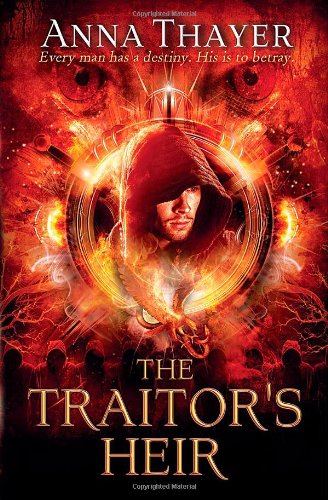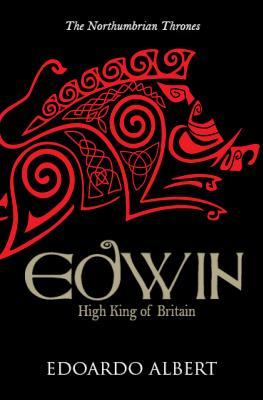One element of CTM which impressed me was the treatment of religious material in general and Sister Bernadette’s story line in season two in particular. Most modern media, whether journalists, television producers, or movie directors, see religion as a source of dogma and intolerance. While completely removing the religious element from Worth’s memoirs would be impossible, it might have been tempting for BBC executives to portray the religious elements as outdated or narrow-minded.
Instead, viewers are treated to a group of nuns who are neither self-righteous, walking sex jokes, or dogmatic. As said in the first season “We are nurses first, nuns second, and midwives primarily.” Not only does their work at Nonnatus House fulfill a critical need in the community, but they are allowed to observe moral standards without coming across as judgmental. Perhaps the shows leans too contemporary at times, with a “live-and-let-live”perspective, but overall, the producers refrained admirably from impressing a modern perspective on the events.
Sister Bernadette’s character arc not only continues the respectful treatment of religious topics, but avoids several sentimental flaws common in Christian fiction. Part of this is due to the format—a television drama does not lend itself to a first person, introspective narrator who spends hours analyzing or suppressing emotions. Viewers are therefore in the same position as Sister Julienne, aware that Bernadette is struggling but unsure why. It also avoids the “easy emotion” of the relationship commencing in the wake of Bernadette’s diagnosis. Instead, Bernadette uses her convalescence to determine her next step.
In all, Bernadette’s story, including her romance with Dr. Turner, is portrayed with sensitivity and skill. I’d rate it among the most-realistically portrayed romances in all dramas. First of all, Bernadette doesn’t spend her time moping or bemoaning her fate. In fact, she seems to have been content and fulfilled as a nun/midwife for a good many years. And she doesn’t seem to value her work less—she is not torn between bad and good, or even good and better, but two goods of almost identical worth.
Also, the romance doesn’t change Bernadette’s character. From her introduction through all the episodes I’ve seen, she remains dependable, self-restrained, and caring. And as someone who doesn’t like to make trouble, who would rather spend an hour helping someone else than ask someone to help me, who has a tendency to bottle and say “it doesn’t matter” when I’m breaking down inside—-I know how that feels, I know why she’d keep everything quiet, and so I adore every scene with Bernadette and Julienne, because I wish I had someone like that to talk with.
I really appreciate what Sister Julienne says to Sister Monica Jones at one point; I can’t find the precise quote, but she says that Bernadette didn’t have a crisis of faith, she had a wilderness experience, and believes God has given her a different path. In both Christian and secular circles, struggle is often equated with doubt, and doubt with falling away, but the three are not necessarily equal. Losing the specifics of a path does not mean you are not secure in faith or that you have lost sight of what is most important in eternity. And as a college graduate trying to figure out where to go next, that message is most reassuring.
But it’s the season two finale that really hit all the emotional buttons—and not in a manipulative way either. First of all, Bernadette asking for secular clothes, because she doesn’t feel like she can wear the habit anymore, and Sister Julienne and Evangelina’s reaction to the contents of her suitcase. She may not be their sister anymore, but they still want to take care of her.
And when Sister Bernadette calls Dr. Turner first about being discharged—I didn’t need to be told that she was truly breaking with Nonnatus House, that she wasn’t going to come back, even for a moment, for fear that she would stay because it was easy. And even then, she still didn’t want to be a burden to anyone, she was just going to take the bus.
Dr. Turner’s response to her call was one of the most heartwarming scenes I’ve ever watched. He just tore out of his office and drove to get her. Even over her protestations, because that was what she needed most at that moment, as she stepped onto a new path.
(I can’t find a clip, so I’m going to include a scene transcript from TV Tropes)
Dr Turner: What if it had started raining? What if you’d got lost?
Sister Bernadette: I was lost. I got the wrong bus.
Dr Turner: I was on the right road.
Sister Bernadette: Yes. [deep breath] I know you so little but I couldn’t be more certain.
Dr Turner: I am completely certain. And I don’t even know your name!
Sister Bernadette: [beaming from ear to ear] Shelagh.
Dr Turner: Patrick.
Sister Bernadette: There. We’ve made a start.
The first thing he does is feel her forehead. Then he wraps her in his coat, to keep her warm on the foggy road. And their wedding in the 2013 Christmas special is adorable. Initially, Shelagh doesn’t feel comfortable inviting the nuns, given that she renounced her vows. But throughout the preparations, little things—someone’s overheard comment that Shelagh is doing things second-class because she’s like a divorcee, the shop lady’s comments about needing a mother or sister to adjust the veil—just keep probing that tender spot. Not to mention Timothy’s sudden battle with polio.
Marriage is not the end of Shelagh’s struggles, which is as it should be. It brings with it its own problems, just as life in the convent had struggles and challenges. And while I haven’t seen all of season three yet, I have seen hints and suggestions that more heartache lies ahead.







